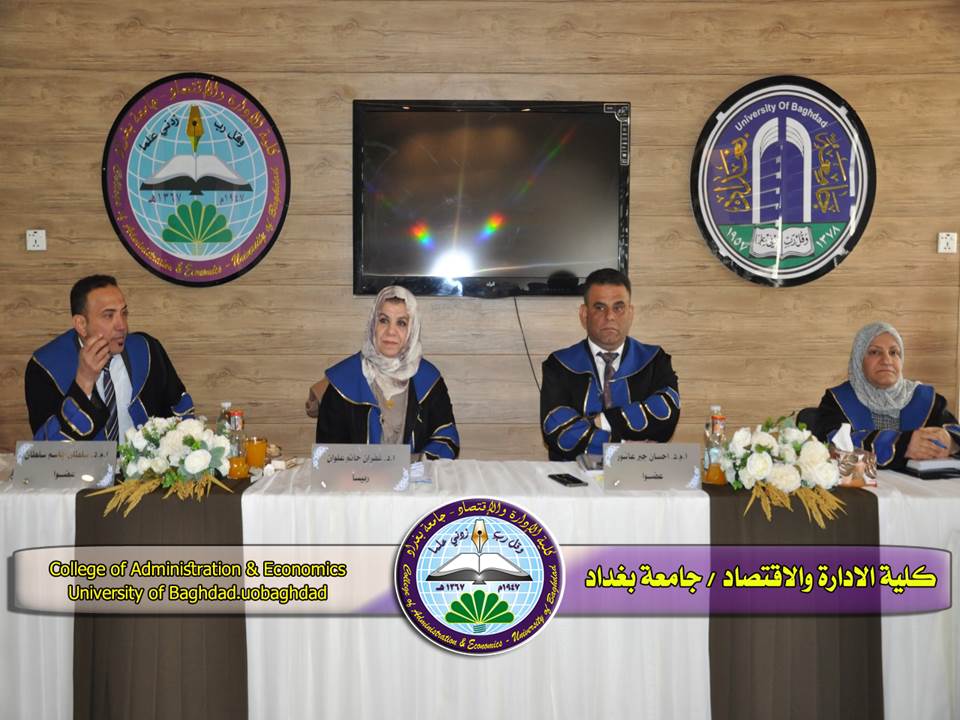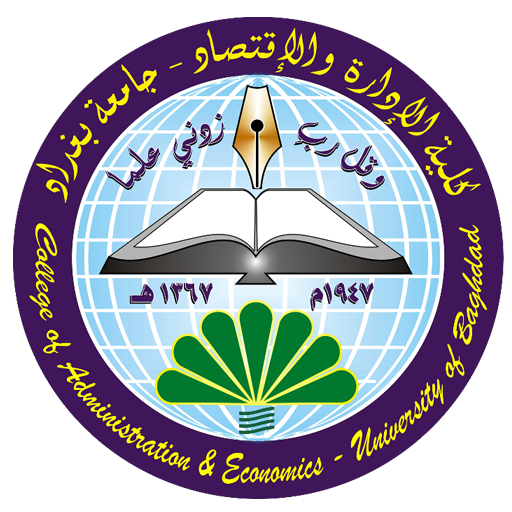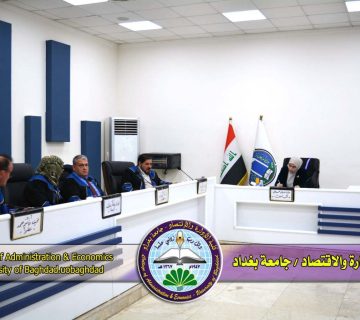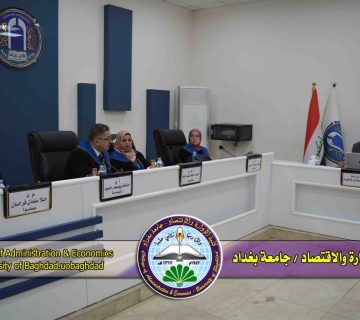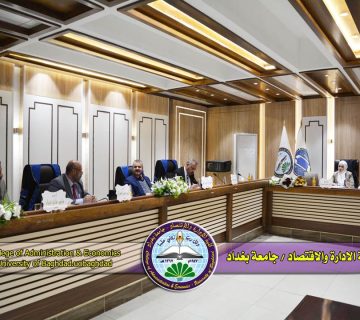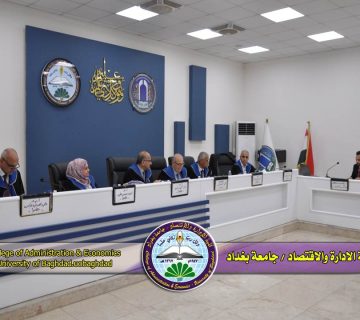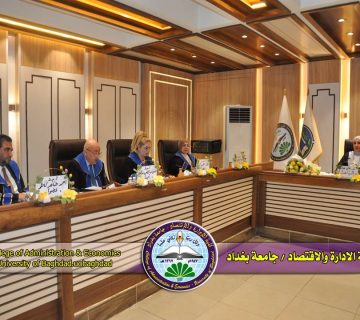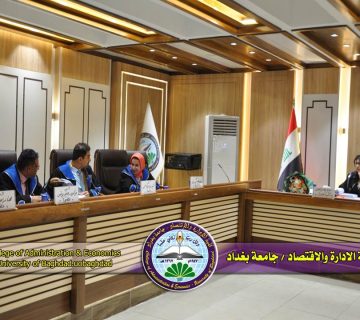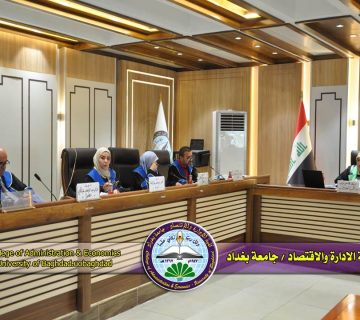The College of Administration and Economics at the University of Baghdad discussed , a master’s thesis in field of Economic by the student ( Huda Majeed Mazhar ) and tagged with ( Analysis of the internal and external gaps and their impact on some macroeconomic variables in Iraq ) , Under supervision of (Assist.Prof. Dr. Sajja Fadhel Jawad )
This research aims to analyze the internal and external gaps in the Iraqi economy during the period (2004 – 2022) and evaluate their impact on some macroeconomic variables, including GDP, unemployment, and inflation. The importance of this topic is highlighted in light of the economic challenges facing developing countries, including Iraq, in securing the financial resources necessary to achieve economic growth and sustainable development. This challenge is clearly evident through the internal and external gaps that can lead to significant economic pressures that threaten the stability of the national economy and weaken development opportunities.
The study also showed that the internal and external gaps clearly affect the economic performance of Iraq, as the internal gap is directly linked to the deficit in financing investment projects due to the weakness of national savings compared to the required investments. In contrast, the external gap shows the trade deficit, resulting from the increase in imports at the expense of exports, which exacerbates the imbalance in the trade balance. These gaps lead to increased pressures on the national economy, which is reflected in the decrease in GDP, the increase in unemployment rates, and the rise in inflation, especially as a result of imported inflation through foreign trade channels.
It is clear to us that there is an inverse relationship between the internal gap and the GDP in Iraq. As the decrease in the internal gap, which translates into an increase in domestic savings and investment, contributes to stimulating economic growth and increasing the GDP. In contrast, the widening of the internal gap leads to weak domestic investments and a decrease in economic growth. As for the external gap, the study showed that it directly affects inflation, as the heavy reliance on imports leads to inflation in domestic prices, which increases inflationary pressures on the Iraqi economy. This study shows the need to take effective measures to enhance public confidence in the Iraqi banking system, with the aim of increasing the volume of national deposits and savings. This measure is pivotal to securing the necessary financing for local investments and reducing the internal gap. The study also recommends the need to diversify sources of revenue by promoting non-oil exports, in order to reduce the external gap and reduce excessive reliance on imports that increase the trade deficit. In addition, work must be done to develop the agricultural and industrial sectors, as activating these sectors can contribute to reducing the volume of imports and increasing local production, which contributes to reducing the external gap and achieving balance in the trade balance. This study provides a comprehensive view of the economic challenges facing Iraq due to internal and external gaps, and highlights possible strategies to deal with these challenges. The study constitutes an important contribution to finding economic solutions that address the issue of economic gaps and their effects on the macroeconomy, and is considered a basic reference for decision-makers seeking to achieve sustainable economic stability in Iraq.
